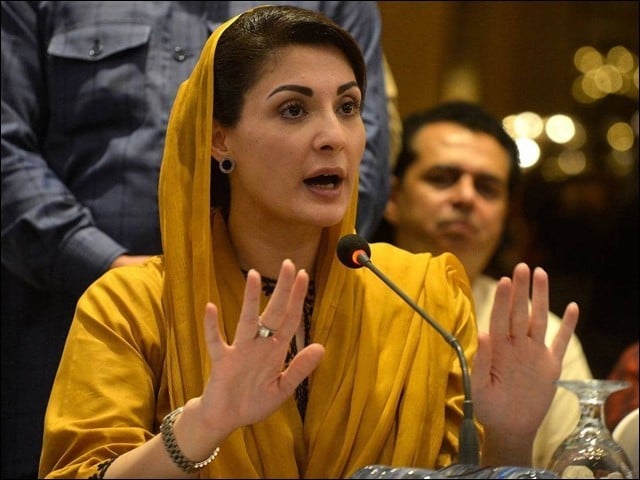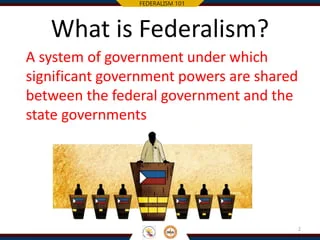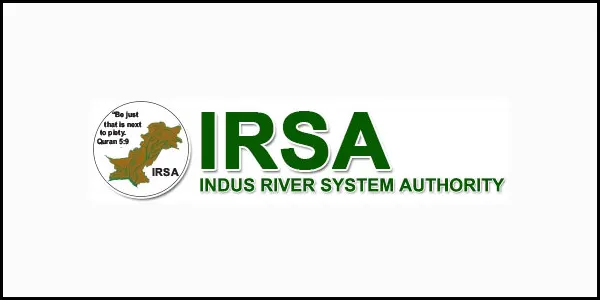So we understand Federalism or do we just pretend to understand it? The question merits the scrutiny of all the legal and political minds of the state. Federalism primarily means the ‘constitutional’ distribution of powers. The terms “distribution” and “power” need further elaboration and clarification.
Distribution may be among the three branches of government – legislature, Executive, and judiciary, which is known as Horizontal distribution, or between the federal government and federating units viz. Vertical distribution. Federalism is a vertical distribution. Nonetheless, distribution whether vertical or horizontal is always of power/authority and in the same vein responsibility.
Power may be defined in the context of Federalism as the distribution of administrative, legislative, and financial authority to the Federating units. The Constitution of every federal state provides a well-articulated framework for the smooth distribution and transition of powers – Administrative, Legislative, and Financial, to the Federating Units.
It is a fact that Federating units are constituted for the sole purpose of efficient public service delivery. But without the devolution of powers and authority to the federating units, the purpose of efficient public service delivery will not be served.
Like all other states in the world, the Islamic Republic of Pakistan also has a supreme law of the land which is known as the constitution. The constitution is a sacred document from which all the laws, ordinances, statutes, rules, and regulations take legitimacy, and those which are not in consonance become illegitimate.
Fortunately, the Constitution of the Islamic Republic of Pakistan has also distributed the powers, authority, and responsibilities between the Federal government and provincial governments. There are two lists of powers (Read-subjects), one is the federal legislative list part-1 and the other is the federal legislative list part 2, while the remaining powers rest purely with the provinces. The FLL Part-1 is purely federal subjects while FLL Part-2 is the mandate of the council of common interest (CCI) as mentioned in Articles153 and 154 of the Constitution.
The concepts of government and state are oftentimes confounded to an extent whereby it becomes almost impossible to draw a line between them. However, the government is just a part of the state. The state is a permanent structure with a definite territory and population therein which is organized under a ‘government’ and has sovereignty. The form of government is determined by the constitution of the state. Likewise, the constitution is always of the state not of the government, however, the government takes legitimacy from the constitution. The discussion on federalism is broader than the discussion on the form of government because federalism is concerned with the state, not solely with the government. The first Article of the constitution of the Islamic Republic of Pakistan says;
“(1) Pakistan shall be a “Federal” Republic to be known as the Islamic Republic of Pakistan”.
Therefore, the debate and discussion on federalism shall be in the context of the supreme law of the land – the constitution, which proclaims Pakistan to be a Federal State.
The framework of federalism is also laid down in the constitution of the Islamic Republic of Pakistan. But it is in theory, not in practice. The 18th Amendment vividly reframed the canvass of federalism by clearly delineating the subjects/ powers between the federal government and provinces. However, the legislative part of Federalism is put in place whereas the financial and administrative parts have yet to complement the federalism envisioned in the Constitution of the Islamic Republic of Pakistan which is the cornerstone of Administrative Federalism.
When the British made up their mind that they can no longer hold the reigns of India, they accepted the demands of Indians and divided India into two states namely Pakistan and India. The Indian Independence Act, of 1947 was promulgated, which comprised the procedure through which the reins of power would be shifted from the British Raj to the Dominion Governments. Section 10 of the Indian Independence Act, of 1947 repealed the provisions of the Government of India Act, of 1935, whereby the Secretary of State for India was exercising his powers as head of the Civil Service of India. Through this Section, he was barred from further exercising this power, and the reservation of posts for Indian Civil Service was also abolished.
‘Reservation of posts’ is a concept first introduced by the Government of India Act, of 1915, whereby Provincial Civil Service posts were reserved for the Central or Indian Civil Service to firmly control the provinces from the center. This was the time when Indians were asking for more powers in the political arena. The British Raj was not ready to share power with Indians but since the first world war was gaining momentum, they could also not enrage the Indians who were threatening to side with the central powers. They introduced reforms by the name of ‘diarchy’. They had given the politicians some powers in provinces but taken it away through their central civil servants by the reservation of posts in provincial civil service.
During the times of constitutional crisis in Pakistan i.e. 1947 to 1956, the remnants of its colonial past and advocates of a centralist/unitary government raised a service called the Central Superior Services (CSP) through a mere resolution or agreement which was made under Article- 163 of the Government of India Act 1935. The said agreement could not be found in Establishment Division and it is “confidential”. The inhabitants of East Pakistan or Bengalis were against a central civil service and were asking for autonomous provinces as envisaged in Pakistan Resolution, 1940. They and their demands were pushed back through this fraud resolution or agreement. In later years, these mere grudges turned into an all-out rebellious movement against the state of Pakistan.
The government of Zulfiqar Ali Bhutto disbanded CSP along with its very Rules called the CSP (Composition & Cadre) Rules, 1954 in 1973 by forming twelve distinct occupational groups. The other occupational groups or services have their own distinct service rules made under the Civil Servants Act, of 1973 and responsibilities related to the affairs of the Federation. However, without any law or legal instrument, the DMG became the successor of CSP by adopting its already repealed Rules of 1954.
Post 18th Amendment, the same repealed Rules have been amended as PAS (Composition & Cadre) Rules, 2014. It is a settled principle of law that a service structure of a cadre stands upon provisions of the Constitution, Acts, Rules, and Cadre of posts. However, the CSP Rules of 1954 rely completely on a “confidential agreement” which is done under the repealed Government of India Act 1935.
In 1993, Establishment Division prepared another post-grabbing formula, calling it an agreement between provinces and the federal government whereby they reserved the posts in connection with the affairs of the province under a “caretaker government”. The said agreement has never been notified, which is another fraud committed by the Establishment Division.
When the Provincial Civil Servants approached the Supreme Court of Pakistan against the DMG post-grabbing formula, they issued SRO 88 of 2014 and included the said formula in the CSP Rules of 1954. Since district management had become a provincial subject (post-18th amendment), therefore they also tried to mutate to become relevant by the new constitutional scheme and changed their name from DMG to Pakistan Administrative Service (PAS). They have badly failed in their maneuvers because their own rules still call them ‘service of the federation.
In 2020, without the backing of any legal instrument, the federal employees (PAS/PSP) started to call themselves All Pakistan Service. After the promulgation of the 1973 Constitution, no All Pakistan Service has ever been raised to date by the Act of Parliament, and the Establishment Division’s claim of PAS being an All Pakistan Service is solely based upon Article 241 of the Constitution by adopting the repealed CSP Rules of 1954, the CSP being disbanded and its Rules repealed in 1973. Can a repealed rule be saved by a saving clause of the Constitution? The matter was taken to the standing committee of the senate wherein the committee recommended constituting an All Pakistan Service through an act of parliament.
Article 240(a) and (b), specifically provide that Parliament would make laws for the posts related to the affairs of the Federation and Provincial Assemblies would legislate laws for the posts in connection with the affairs of the Provinces. In complete contravention of the same, posts related to the affairs of the Provinces are earmarked for the officers of PAS in the garb of All Pakistan Services through a mere SRO without placing the same before the Parliament or Provincial Assembly for authentication.
Despite the matter being subjudice in the Supreme Court of Pakistan and High courts, the Establishment Division has again issued SRO No.1046 and has amended the CSP Rules, 1954 to legalize DMG, which is not possible under the Federal and Parliamentary Constitutional scheme.
Irrespective of the legal competency of the PAS Cadre, if we accept their claim of being All Pakistan Service and calculate the provincial posts in the light of their own CSP Rules of 1954 amended as PAS Rules of 2014. The schedule of the said Rules earmarks 321 specific posts for PAS in provincial services and after applying the percentage or formula in Rule 7.1 of the ibid Rules, there remain only 147 posts. However, in defiance of their own Rules, 600 PAS officers have been recruited and are also being promoted to 2000 random/unspecified provincial posts by depriving the Provincial Civil Servants of their right to career progression, thus affecting the efficient public service delivery.
On the contrary, through SRO 1046, they have now authorized the Establishment Division to grab more provincial posts at its pleasure by surpassing the authority of provincial executives by changing the definitions of the federal government and provincial government.
This act is not only tantamount to the subversion of the Constitution but also a usurpation of the authority of Parliament and Provincial Assemblies to legislate laws for their affairs provided by the Constitution. Federal Service or Posts would be raised on subjects reflected in Federal Legislative List Part I and All Pakistan Service of Posts would be raised on subjects reflected in Federal Legislative List Part II coming under the ambit of Council of Common Interests (CCI) as provided under Article 153 and 154 of the Constitution.
Thus, conducting recruitments, training, and promotions of PAS (Service of the Federation) as per abandoned CSP Rules of 1954 on Provincial posts is a constitutional offense and should be halted immediately for establishing the supremacy of the Constitution.
Unfortunately, third-world states are prey to the plague of the status quo and the reason is that the people at the helm of affairs do not want to disturb the scheme of things for the reasons known to them. They seek and need constant approval in the shape of rationalization, but don’t go for reformation of the system. We are history-blind and don’t want to see the history whereby the status quo is disrupted when not disturbed in favor of the people and the agents of this disruption used to be the common man.
















